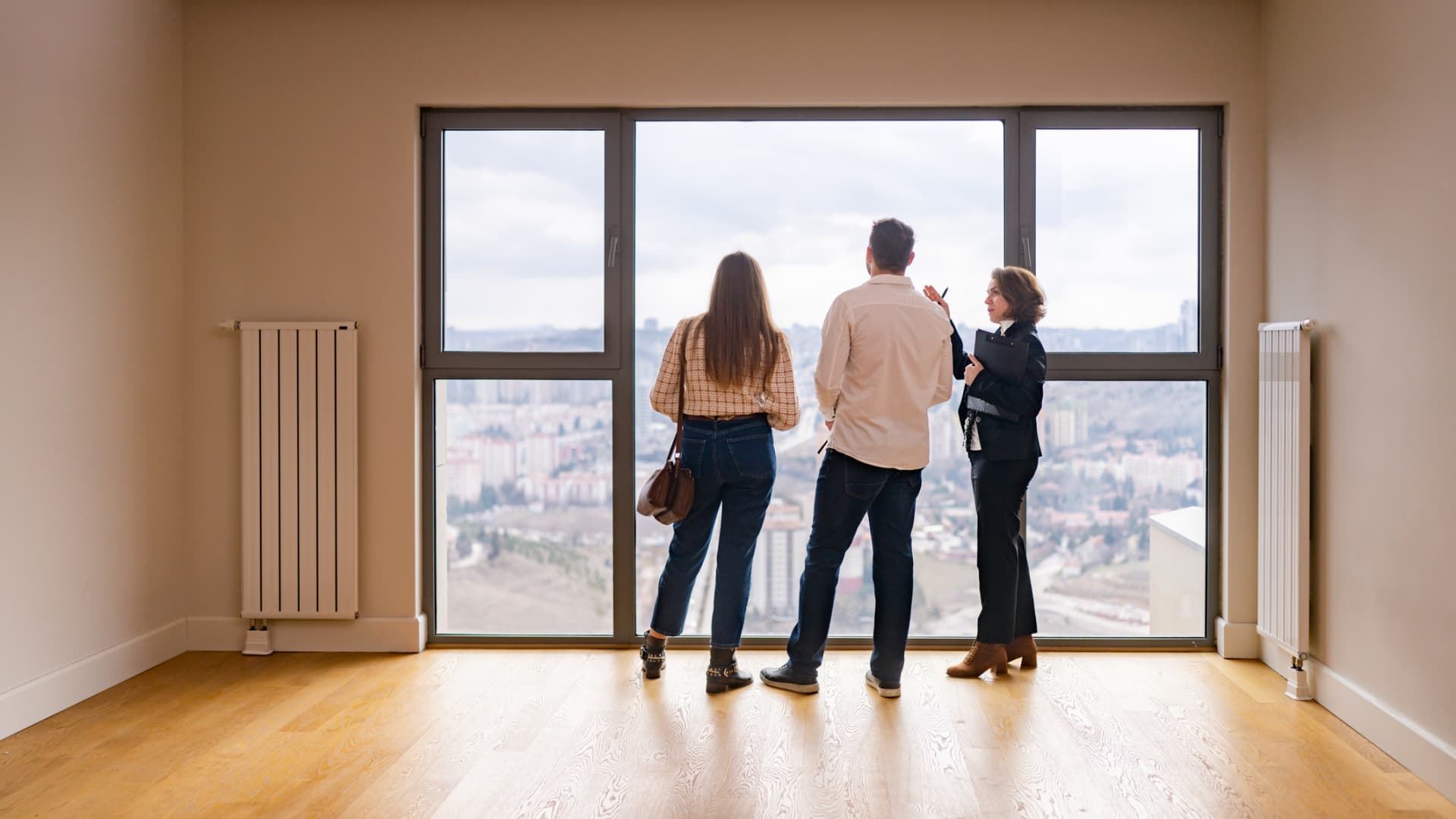Rental markets are cooling, but it ‘doesn’t mean they’re falling,’ Harvard researcher says. Here’s what that means for renters
2 min read
Recep-bg | E+ | Getty Images
Rent costs are beginning come down after record-high asking prices.
“Rental markets are cooling, but in a lot of places, it doesn’t mean they’re falling. It means they’re growing at a slower pace,” said Whitney Airgood-Obrycki, senior research associate focused on affordable housing at the Joint Center for Housing Studies of Harvard University.
Prices are beginning to come down as supply boosts vacancy and demand slows from record highs in 2022.
More from Personal Finance:
Here are the top 10 hottest housing markets in 2024
Here’s where people are moving
How to use rent-reporting services to boost credit
As of December, the median U.S. asking rent price fell to $1,964, down 0.8% from a year prior. That’s the third consecutive monthly decline, according to real estate site Redfin, following a 2.1% drop in November and 0.3% in October. (The rent price reflects the current costs of new leases during each time period and the data includes single-family homes, multi-family units, condos/co-ops and townhouses).
More higher-end units may spur ‘filtering-down effect’
Easing rents are happening indirectly. The new builds that are boosting supply are mostly among higher-end apartment units, which can command higher asking rent prices, said Susan M. Wachter, a professor of real estate and finance The Wharton School of the University of Pennsylvania.
“It’s kind of a ‘filtering-down effect’ which will eventually affect rents,” Wachter said.
It will take time for boosted supply and slowed demand to significantly improve rent affordability across income levels.
According to Airgood-Obrycki, most of the construction is happening in professionally managed apartment buildings, which are classed by A, B, and C categories.
“New apartments are almost always Class A,” she said. “What we’re adding is really at the high end.”
Increasing the supply of higher-rent Class A units often encourages tenants to upgrade to new units, making prices in those units level out and boosting vacancy in Class B and C units, Airgood-Obrycki said.
There are more newly built and under-construction buildings coming to the market than there were a year ago, Redfin found. The amount of completed apartments alone is near the highest level in more than 30 years while those under construction are close to a new record.
Some areas are already seeing these effects: the South and West regions are seeing prices cool due to more new builds; prices in the Midwest and Northeast remain elevated due to less availability, Redfin found.







